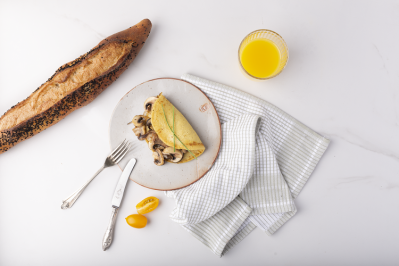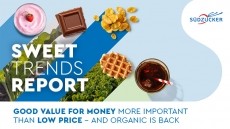Start-up spots gap in market for ethical 'chick-culling free' eggs

The mass-culling of male chicks immediately after hatching is a common practice in global industrial farming. Male chicks are considered redundant by egg and poultry producers. Egg producers use cockerels in breeding programmes, while hens are preferred for meat because they grow faster. It is uneconomical to fatten the male animals, who are mostly killed by 'macerators' or suffocated using gases such as argon or nitrogen.
The issue recently hit the headlines in Germany, where it is estimated around 45m male chicks are killed each year.
In 2013, the state of North Rhine-Westphalia issued a decree banning hatcheries from killing chicks. Two egg hatcheries in the state then appealed against the ban.
Earlier this month on 13 June, Germany’s high court in Leipzig ruled against the ban, saying the killing of the unwanted male chicks was still lawful. However, it stated the practice will only be allowed for a temporary transition period until alternative methods can be found.
Germany's federal minister of food and agriculture, Julia Klöckner, is among those who oppose the slaughtering of male chicks. After the ruling she said: "My position on chick deaths has long been clear: ethically it's not justifiable. The practice has to end as quickly as possible."
Step in Seleggt, a joint venture between German retailer Rewe and Dutch technology company HatchTech, which, with the help of funding from the German Federal Ministry of Food and Agriculture, has been working to find a solution for the past 10 years.
Determining gender in hatching eggs
Seleggt has discovered a process that identifies the gender in a hatching egg. The procedure, first pioneered by professor Almuth Einspanier from Leipzig University, works by first using a sensor to check whether the hatching egg is fertilised. Then a laser creates a fine hole in the hatchery shell (which mends itself naturally after a few hours) and some allantoic fluid is withdrawn. This fluid is then tested to determine the gender. Male hatching eggs and the unfertilised eggs are then processed into high-quality feed. According to Seleggt, the hatching egg powder contains “essential and valuable components that will provide a more efficient way of feeding young farm animals in the future.”
The female eggs return to the incubator and hatch on the 21st day of the incubation period. The eggs that are eventually produced by these chicks are then sold to consumers. The eggs are marked with a 'respeggt' stamp, and customers know they are buying eggs produced free of chick culling.
An expensive solution
"The method isn't cheap,” Seleggt’s project head, Martijn Haarman, told the 11th European edition of the Sustainable Food Summit in Amsterdam. “It's not exactly fast but it is reliable and usable in practice… it’s more efficient than the other options that exist [such as fattening the male chicks for meat or dual purpose breeding],”
"From the moment the egg is incubated when the sexing of the egg takes place, it takes three weeks of incubation then it takes 20 weeks before these chicks start laying eggs. It’s a long return on investment.”
However, a solution that eliminates the need to kill male chicks ticks two boxes. “Male chicks are useless and killed on the first day of their lives. This causes delays and it is not good for animal welfare,” noted Haarman.
The ‘respeggt’-stamped eggs have been sold in 300 supermarkets in Berlin since November last year and will be available in all Penny and Rewe stores in Germany by the end of 2019.
Earlier last year, the method won Compassion in World Farming’s best innovation award.
The ‘respeggt’ logo is “pretty confronting to people,” said Haarman. “They think 'do I kill chicks by eating regular eggs?'… yes, you do."
Consumers can expect to pay a premium for the peace of mind of 'respeggt' eggs, which cost one to two euro cents more per egg compared to standard ones.
“It took 10 years but we’ve taken it to market pretty fast,” said Haarman.
At the same time, Seleggt has developed a business model to make the technology available to the industry.
"The method is expensive, but we are continuously improving our technology to be faster, to be more accurate and so that we require less personnel.
“If I were to sell my current technique to a hatchery the buyer would be at a disadvantage because next year they would already have an old fashioned system.”
Seleggt therefore decided to offer the solution as a free service to hatcheries. “They don't need to spend anything or need to learn to use any equipment. Everything is provided by Seleggt. We can put the latest technology in a hatchery that participates. All we ask for is a room in the hatchery and we will come and separate the male eggs from the female eggs.
"The payment for our service in the hatchery, we receive from the egg packing stations. We make agreements with them to stamp eggs which are sold as "free of chick culling". If an eggs is stamped, they pay us a license fee."
He added: “Many organic farmers have approached us because they often really have a problem that the male chicks are killed.”






























